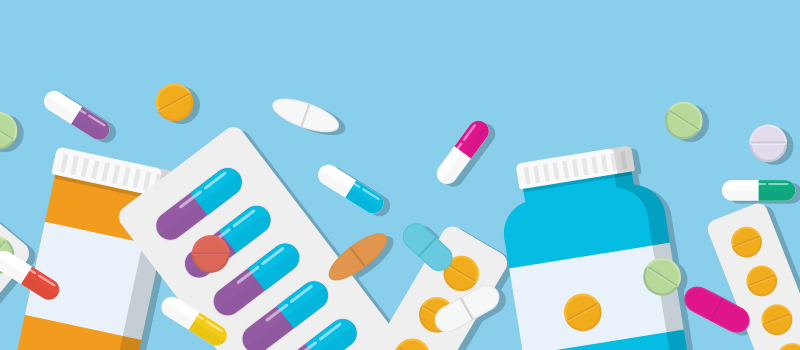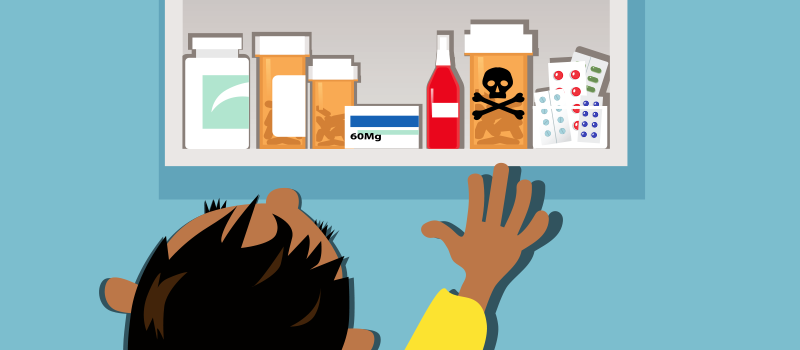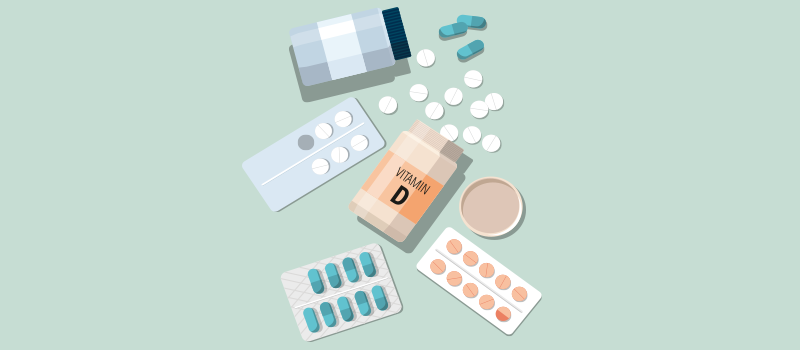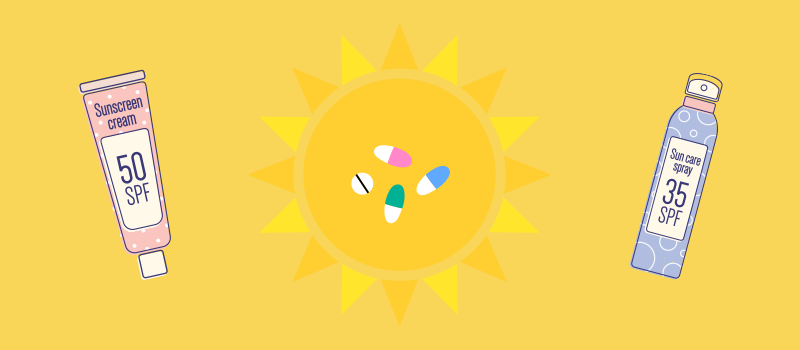What’s the Buzz
The Bee Healthy Blog
Fenofibrate for Cholesterol: What to Know

Key Takeaways
-
Fenofibrate is a fibric acid derivative prescribed to treat high cholesterol levels and triglycerides in patients with medical conditions such as primary hypercholesterolemia and mixed dyslipidemia.
-
Fenofibrate may cause side effects such as unexplained muscle pain, severe stomach pain, allergic reactions, and serious skin reactions.
-
Serious adverse effects can include gallbladder disease, chest pain, liver disease, toxic epidermal necrolysis, pulmonary embolism, and kidney disease.
What is fenofibrate?
Fenofibrate belongs to the class of drugs known as fibric acid derivatives, primarily prescribed to treat high cholesterol levels and triglycerides in the blood. In addition to lifestyle modifications and a healthy diet, fenofibrate treats medical conditions such as primary hypercholesterolemia and mixed dyslipidemia, which ultimately help to reduce the risk of stroke and cardiovascular diseases.
Continue reading to learn more about potential side effects, interactions, dosage recommendations, and precautions associated with fenofibrate.
Why do you need to manage cholesterol levels?
Cholesterol is a lipid that is vital for a wide range of bodily functions, such as the structural development of cell membranes, hormone production, and digestion of fats. High levels, especially low-density lipoprotein (LDL) cholesterol, can lead to plaque formation in arteries, narrowing blood vessels and resulting in a blockage, which can put you at a higher risk of cardiovascular diseases. Fenofibrate, along with lifestyle changes, helps to manage your cholesterol levels.
How fenofibrate works
Fenofibrate affects the body's lipid metabolism and increases the breakdown of triglycerides, which are a type of fat found in the blood.
Fenofibrate decreases LDL cholesterol levels by reducing the production of very low-density lipoprotein (VLDL) cholesterol. It increases high-density lipoprotein (HDL) cholesterol levels in the blood, considered the ‘good’ cholesterol.
By lowering LDL cholesterol levels, increasing the breakdown of triglycerides, and increasing HDL cholesterol levels, fenofibrate reduces the risk of atherosclerosis, a disease condition of blood vessels, specifically arteries, that become blocked due to plaque formation. It also helps to lower the risk of heart disease.
Fenofibrate is available in various brand names, such as Triglide, Fibricor, and Lipofen.
Fenofibrate uses
Fenofibrate is primarily used to treat high cholesterol and elevated triglycerides in patients suffering from hypertriglyceridemia and mixed dyslipidemia.
Fenofibrate is also used to treat primary hypercholesterolemia. It is evident that higher-than-normal levels of low-density lipoprotein (LDL) cholesterol lead to hypercholesterolemia.
Dosage and administration
Fenofibrate is available in tablet and capsule forms; your healthcare provider will determine the dosage based on the following factors:
-
What condition is being treated;
-
The brand name and formulation being used;
-
Adjustments may also be made based on your cholesterol and triglyceride levels
For example, the dosage recommendations for Tricor and generic (fenofibrate) are as follows:
-
High cholesterol: Take 145 mg by mouth once daily;
-
Severe high triglycerides: the dosage range is 48 mg to 145 mg by mouth once daily, with the maximum dose being 145 mg by mouth daily.
Strict adherence to the prescribed dosage is crucial. Avoid changes in the prescribed dosage without the consultation of the healthcare provider.
Common side effects
Fenofibrate may cause muscle pain, severe stomach pain, allergic reactions, and serious skin reactions.
Some individuals may experience more serious side effects, such as liver damage (unusual fatigue, dark urine, and yellowing of the eyes or skin) and allergic reactions. Signs of an allergic reaction can include trouble breathing, difficulty swallowing, dizziness, swelling, itching, and skin rash or hives.
Adverse effects
Fenofibrate therapy is generally safe and effective for most people. However, in rare circumstances, serious adverse effects can occur. These risks include:
-
Gallstones or gallbladder disease
-
Chest pain
-
Liver disease
-
Toxic epidermal necrolysis, a rare, life-threatening skin condition
-
Kidney problems
Drug interactions and warnings
Fenofibrate interacts with several medications, including:
-
Bile acid sequestrants like cholestyramine or colestipol
-
The effectiveness of fenofibrate is decreased when used with bile acid sequestrants. Your doctor may recommend you take fenofibrate at least 1 hour before or 4-6 hours after taking a bile acid sequestrant.
-
Blood thinners like warfarin
-
Blood thinners can lead to an increased risk of uncontrolled and life-threatening bleeding when combined with fenofibrate.
-
Statins (cholesterol-lowering medications)
-
Fenofibrate and statin combination therapy can put you at increased risk of muscle problems.
-
NSAIDs (nonsteroidal anti-inflammatory drugs) like aspirin, ibuprofen, and naproxen
-
Avoid any over-the-counter NSAIDs while taking fenofibrate, as these can negatively affect your liver or kidney function.
Tell your doctor about any medications, dietary supplements, and over-the-counter products you have been taking to ensure the safety and effectiveness of fenofibrate therapy.
Considerations
Missed dose
If you miss a dose, take it as soon as you remember. However, if it is almost time for your next dose, skip the missed dose and go back to your regular dosing schedule. Do not take two doses together or extra medicine to make up for a missed dose.
Consult your healthcare provider about any dosing schedule concerns.
Alcohol
Avoid drinking alcohol while taking fenofibrate, as alcohol affects the liver and can potentially worsen liver problems. You should also avoid drinking alcohol to prevent an unusual or allergic reaction.
Overdose
Overdose symptoms include muscle pain, extreme fatigue, vomiting, persistent nausea, and severe stomach pain.
If an overdose of fenofibrate is suspected, call your doctor or poison control center (888-222-1222) immediately. You should seek medical attention at the nearest hospital if the symptoms are severe.
Regular Monitoring
While taking fenofibrate, it's important to keep all follow-up appointments so that your doctor can closely monitor your renal function and liver function. To assess the effectiveness of fenofibrate therapy, your healthcare provider will also check your blood lipid levels to monitor triglyceride levels, total cholesterol, HDL cholesterol levels, and LDL cholesterol levels.
When to consult a healthcare professional?
Consult a healthcare professional in the following instances:
-
If you notice any new or worsening symptoms, such as unusual tiredness, skin rashes, unexplained muscle pain, or stomach pain while using fenofibrate.
-
If you have a history of gallbladder, liver, or kidney disease or related symptoms, such as nausea, vomiting, or severe abdominal pain.
-
If you are concerned about other health conditions like active liver disease or severe kidney disease.
Save on Your Medication with BuzzRx!
Manage your medication costs with BuzzRx coupons. Here are direct links to substantial savings for each medication:
-
Fenofibrate Coupon: The retail price is about $228.04, but with BuzzRx, you might pay as low as $16.92.
-
Cholestyramine Coupon: Typical retail prices are around $120.52. With BuzzRx coupons, you could pay as low as $64.45.
-
Colestipol Coupon: Save with BuzzRx coupons, with prices as low as $20.85.
-
Warfarin Sodium Coupon: The usual prices are as high as $58.99, but BuzzRx coupons pay as low as $8.38.
-
Aspirin Coupon: With retail prices up to $10.90, a BuzzRx coupon can help you to pay as low as $4.08.
-
Ibuprofen Coupon: With BuzzRx coupons, pay as low as $5.12.
-
Naproxen Coupon: The retail price is as high as $89.99 at certain pharmacies. With BuzzRx coupons, pay as little as $6.55.
Remember, these coupons are widely accepted at over 60,000 pharmacies, including major chains like CVS, Walgreens, and Rite Aid. Just present your coupon at the pharmacy to ensure you're getting the best possible price.
References












SOCIAL